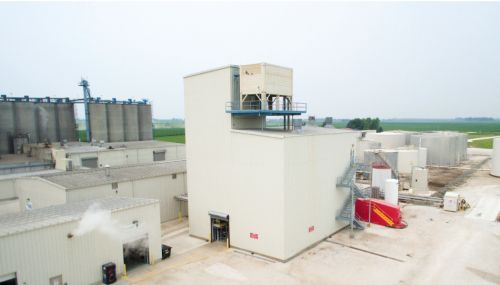All
ISO New England Publishes Operational Fuel-Security Analysis

Goal is to understand future effects of trends already affecting power system
 ISO New England, the independent operator of the region’s bulk power system and wholesale electricity marketplace, has released its Operational Fuel-Security Analysis. The study, published January 17, 2018, assesses whether possible future resource combinations would have enough fuel to ensure bulk power system reliability throughout an entire winter. The results indicate that maintaining reliability is likely to become more challenging, especially if current power system trends continue.
ISO New England, the independent operator of the region’s bulk power system and wholesale electricity marketplace, has released its Operational Fuel-Security Analysis. The study, published January 17, 2018, assesses whether possible future resource combinations would have enough fuel to ensure bulk power system reliability throughout an entire winter. The results indicate that maintaining reliability is likely to become more challenging, especially if current power system trends continue.
In late 2016, ISO New England began the Operational Fuel-Security Analysis to quantify the region’s future fuel-security risk — the possibility that power plants won’t have or be able to get the fuel they need to meet consumer demand and maintain power system reliability. The study grew out of the ISO’s experiences operating the system through challenging winter conditions, as well as its observations regarding trends affecting power system operations.
“ISO New England conducted this study as a logical extension of our responsibility to ensure power system reliability in New England. The goal was to understand the future implications of several significant trends already affecting grid operations,” said Gordon van Welie, CEO of ISO New England. “The results aren’t a prediction, but they do shine a light on the potential reliability consequences of retirements of generators with stored fuels and the significance of liquefied natural gas, imports, renewables, and oil inventories at dual-fuel power plants. With this information, we can begin a discussion with regional stakeholders about how to ensure continued power system reliability, especially as the region moves toward economy-wide decarbonization.”
The significant trends driving the evolutions of New England’s power system include: the region’s demand for natural gas is growing; the natural gas infrastructure capacity is not always adequate to deliver all the gas needed during winter for both heating and power generation; and a large portion of the proposed new power plants would use natural gas. Meanwhile, coal, oil, and nuclear power plants have been essential for reliability when natural gas is in short supply, but they are retiring. New England has limited dual-fuel generating capability — that is, the ability to switch between natural gas and oil — and siting and permitting new dual-fuel power plants is becoming more difficult, as emissions restrictions on burning oil are tightening.
This unique operational analysis measures how often energy shortfalls require the ISO to employ emergency actions, up to and including rolling blackouts. The operational impact was measured in hours of emergency operating procedures that would be necessary to maintain system reliability when not enough fuel was available to generate all the electricity needed to meet forecasted electricity demand during the entire winter of 2024-2025.
“While the study examines a future winter period, New England’s power system operations during the recent cold spell highlighted the importance of fuel security to reliability,” added van Welie. “Due to the gas infrastructure constraints and the high price of gas, the region relied heavily on oil-fired generation to keep the lights on, causing fuel inventories to be rapidly depleted and straining the oil supply chain. As oil inventories began to run low and storm conditions made fuel deliveries difficult, the ISO was forced to limit the operation of certain oil units to conserve fuel until gas became more widely available.”
The study developed 23 hypothetical scenarios, incorporating the same types of resources and fuels used in today’s generating fleet. The study accounted for the demand-reducing effects of projected energy-efficiency measures and distributed solar power, assumed no additional natural gas pipeline capacity to serve generators would be added during the timeframe of the study, and assumed all New England coal plants had retired. The 23 scenarios examined the operational impacts of winter-long outages at four major energy facilities in the region, as well as varying levels of five key variables:
- The retirements of coal- and oil-fired power plants;
- Availability of liquefied natural gas (LNG);
- Oil tank inventories at dual-fuel generators;
- Electricity imports from neighboring power systems;
- Addition of renewable resources.
The study’s findings suggest six major conclusions:
- Outages: The region is vulnerable to the season-long outage of any of several major facilities.
- Stored fuels: Power system reliability is heavily dependent on LNG and electricity imports; more dual-fuel capability is also a key reliability factor, but permitting for construction and emissions is difficult.
- Logistics: The timely availability of fuel is critical, highlighting the importance of fuel-delivery logistics.
- Risk trends: All but four scenarios result in fuel shortages requiring rolling blackouts, indicating the trends affecting New England’s power system may intensify the region’s fuel-security risk.
- Renewables: More renewable resources can help lessen the region’s fuel security risk, but are likely to drive coal and oil-fired generation retirements, requiring higher LNG imports to counteract the loss of stored fuels.
- Positive outcomes: Higher levels of LNG, imports, and renewables can minimize system stress and maintain reliability; to attain these higher levels, delivery assurances for LNG and electricity imports and transmission expansion will be needed.
The ISO will discuss the results of the Operational Fuel-Security Analysis with stakeholders, regulators and policymakers through 2018. A key question will be the level of fuel-security risk the ISO and the region would be willing to tolerate.
As the system operator mandated to maintain a reliable power system, the ISO must conduct its own assessment of the level of risk to reliable operations. A primary consideration will be ISO New England’s responsibility, as a regional reliability coordinator, to operate the region’s power system in a way that maintains the reliability of not only the region but also the entire Eastern Interconnection.
Related Posts
 Why Quality Matters in Your Biofuel Blends
Why Quality Matters in Your Biofuel Blends
Posted on June 25, 2025
 HEAT Show Gears Up
HEAT Show Gears Up
Posted on June 25, 2025
 What’s Next in Boiler Technology
What’s Next in Boiler Technology
Posted on June 25, 2025
 How Intelligent Are Your Integrated Customer Platforms?
How Intelligent Are Your Integrated Customer Platforms?
Posted on June 25, 2025
Enter your email to receive important news and article updates.
